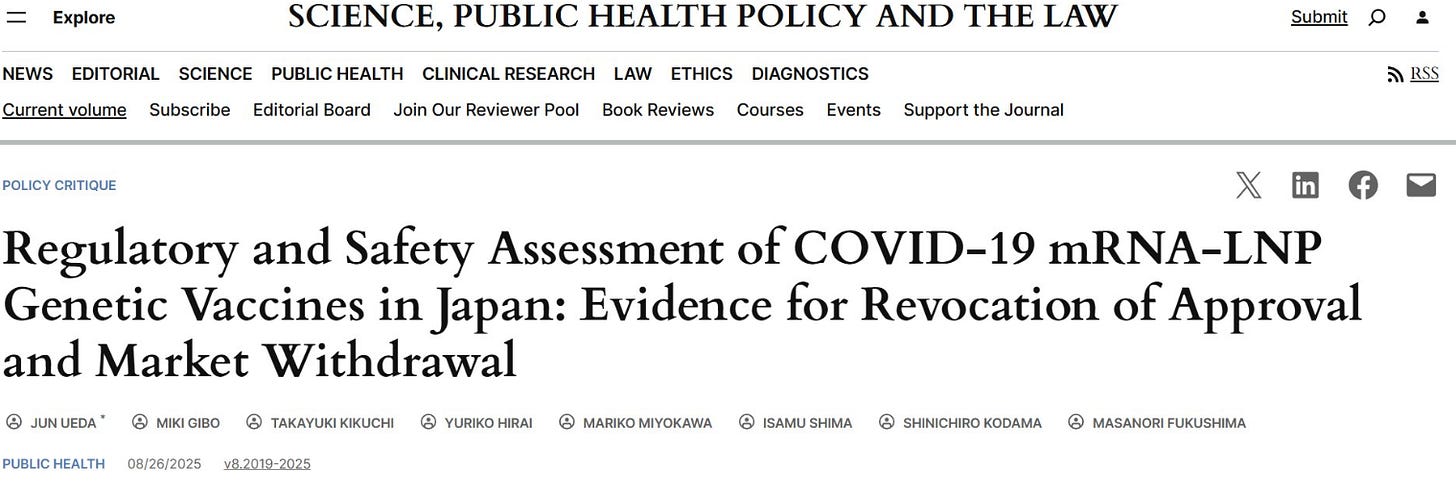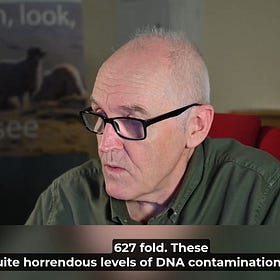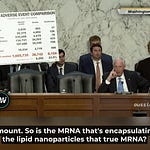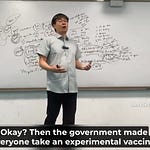On September 18, 2025, The Japan Vaccine Issues Research Association (JVIRA), a general incorporated association dedicated to scrutinizing vaccine-related concerns, hosted a press conference. For the first time ever, officials from Japan's Ministry of Health, Labour and Welfare (MHLW) attended a gathering focused on the potential harms of these novel injections. This wasn't just a symbolic gesture; it signaled a newfound willingness from the government to engage, listen, and potentially collaborate on addressing what many see as a public health crisis.
Led by the formidable Professor Masanori Fukushima—an oncologist, pharmacoepidemiologist, and pioneer in Japan's drug safety education—the event centered on a bold demand: the immediate cancellation of approval and market recall of messenger RNA (mRNA) vaccines and their lipid nanoparticle formulations. Drawing from a freshly published peer-reviewed paper in English, the association presented compelling evidence that these vaccines were mishandled during approval, treated as conventional shots when they are, in essence, groundbreaking gene therapies with unpredictable consequences.
The presence of six MHLW officials—from departments handling pharmaceutical evaluation, medical safety, surveillance, and infectious disease control—marked a seismic shift. In previous JVIRA press conferences, such as those in January 2024 and January 2025, government representatives had been sparse or absent, often limiting interactions to brief handovers of documents.
Prof. Fukushima, the association's representative director, brings unparalleled credentials to the table. A former professor at Kyoto University, where he established Japan's first pharmacoepidemiology course in 2000, he has spent decades studying drug side effects. Pharmacoepidemiology, as he defines it, is "the science of preventing harm from pharmaceutical side effects." His background as an oncologist further sharpens his lens on how foreign substances—like mRNA-encoded spike proteins—might interact with the human body over time.
Central to their case is a peer-reviewed paper arguing that mRNA vaccines were erroneously evaluated under outdated guidelines for conventional infectious disease vaccines. These shots, Prof. Fukushima asserted, are fundamentally different: they instruct human cells to produce antigens internally, making them akin to gene therapy products. This misclassification, he argued, bypassed critical scrutiny under laws like the Cartagena Protocol on Biosafety, which governs genetically modified organisms and involves multiple ministries beyond just Health.
The materials distributed included the request document to MHLW Minister Fukuoka, copies of prior submissions, and the translated paper. Prof. Fukushima emphasized the scale of reported harms: over 2,000 deaths voluntarily reported by medical institutions, nearly 10,000 severe cases, and close to 40,000 suspected side effects. These figures dwarf those from past controversies, like the HPV vaccine, which affected far fewer but still prompted national debate.
At the heart of the press conference were Prof. Fukushima's pointed critiques, grounded in his expertise as an oncologist. He didn't mince words: these vaccines aren't traditional inoculations but novel interventions with profound implications.
One standout assertion: "It is a novel gene therapy drug. Substantively, it is a gene therapy drug. This gene, in this stable form of messenger RNA, is introduced into the body. When cells take it up, what happens is that it gets incorporated into the nucleus and integrated into the DNA."
This claim challenges the foundational assurances given during the vaccines' rollout. Manufacturers and regulators insisted mRNA remains in the cytoplasm, degrades quickly, and doesn't alter DNA. But Prof. Fukushima cited emerging evidence to the contrary. He referenced recent papers showing integration in cancer tissues: in a bladder cancer patient, mRNA was found incorporated into DNA. Similarly, Emeritus Professor Sano at Kochi University detected persistent spike protein in breast cancer skin metastases over a year post-vaccination—absent in pre-vaccination surgical samples.
As an oncologist, Prof. Fukushima expressed deep concern: "In cancer patients’ tissues, it gets incorporated, or it may even promote cancer growth or carcinogenesis—we don’t know. There are so many unknowns, and now with this disease, I strongly emphasized to the Ministry of Health, Labour and Welfare officials that this is new. If things we’ve never seen before are happening now, we must face them properly and shine the light of science on them."
Indeed, doctors and scientists worldwide are alarmed by DNA contamination in mRNA vaccines, which may lead to cancer.
He elaborated on the mechanisms: mRNA is stabilized with pseudouridine to prevent rapid degradation, then encapsulated in lipid nanoparticles (LNPs) that mimic exosomes, allowing widespread bodily distribution—including the brain. This echoes environmental concerns with nanoplastics, which cross barriers and accumulate. Cells engulf these particles, leading to unpredictable outcomes like inflammation or integration.
Prof. Fukushima drew parallels to evolutionary biology: RNA is naturally unstable due to ubiquitous RNases, but engineering stability disrupts this balance. "Stabilizing RNA with pseudouridine caused this issue," he said. Evidence from Japanese doctors, like Dr. Ono in Hokkaido, shows spike protein in cerebral hemorrhage sites, confirmed by in situ hybridization detecting mRNA.
These findings aren't isolated. Prof. Fukushima noted international data, including U.S. Congressional testimonies where former CDC Director Robert Redfield admitted knowledge of biodistribution and toxicity early on.
Prof. Fukushima didn't stop at risks; he dismantled the benefits narrative. "We’re only now starting to grasp the full scope, but regarding the benefits, we still don’t know much. It’s not just about papers—there are papers, but in reality, comparing vaccinated and unvaccinated people prospectively to see how many are hospitalized or how many die—when you look at the deaths, even setting aside vaccine-related deaths, it’s strange that more vaccinated people die from COVID."
He cited MHLW data from July 2021 showing higher COVID mortality in vaccinated groups, later retracted as "unreliable." A 2022 report omitted mortality but showed increased infections in some ages. "If infections increase and COVID mortality rates are high, it’s a double blow."
Extending his critique: "Vaccines—in other words, the influenza vaccine—is unnecessary. The COVID vaccine isn’t needed either. We’ve been brainwashed into this vaccine craze, and whether we can break free from that is the question."
This press conference isn't just a Japanese story—it's a global wake-up call. For too long, the mantra of "safe and effective" has been parroted without scrutiny, silencing dissent and ignoring victims. But as Prof. Fukushima's evidence shows, mRNA vaccines are neither: they're experimental gene therapies with DNA-altering potential, persistent toxins, and unproven benefits that may even increase risks.
The "safe" lie crumbles under 2,000+ deaths, 40,000+ adverse events, and links to cancer, CFS, and strokes. "Effective"? Data reveals more COVID deaths in vaccinated cohorts, no infection prevention, and negligible severe outcome reduction. We've been sold a bill of goods, brainwashed into a vaccine cult that prioritizes profits over people.
Japan's MHLW, by attending, offers hope for change. But if they falter, the harms will multiply—cancers emerging, families shattered, trust eroded. It's time to recall these shots, compensate victims, and rebuild science on facts, not fiction. The "safe and effective" era is over; accountability begins now.
Full Clip Here
signing off for now,
A17











